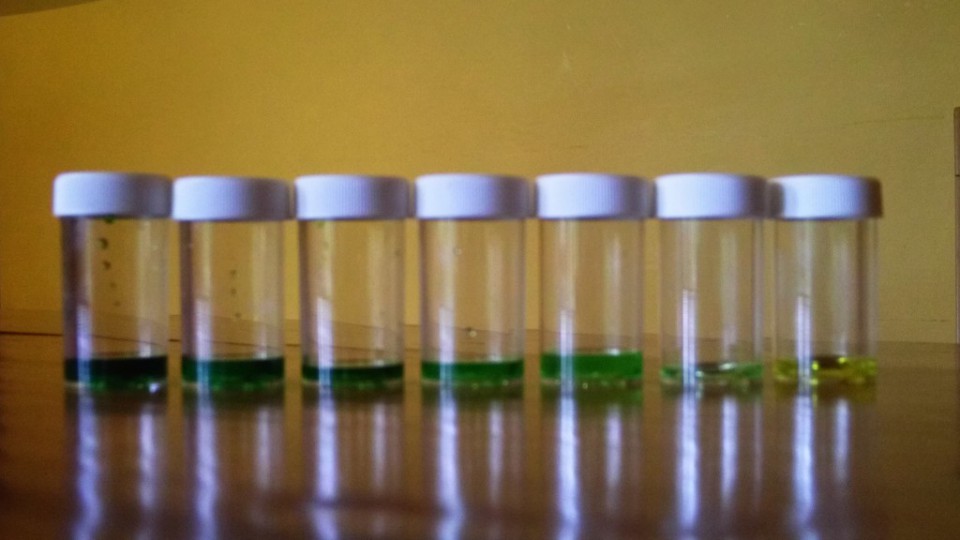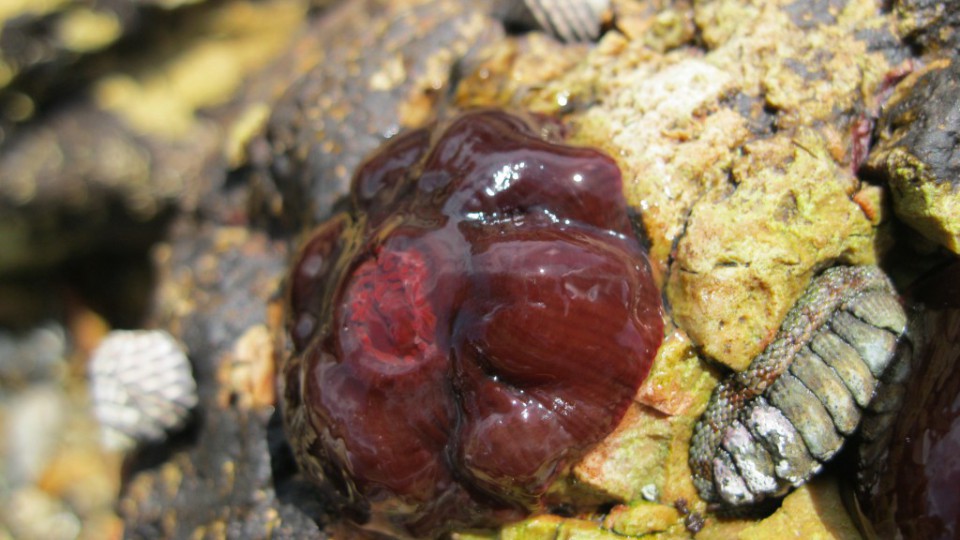By Lachlan:
Today, I went to the first day of the CSIRO boot camp, in North Ryde, Sydney. It was chemistry day and after completing the compulsory 'icebreaker' activities, the instructors, Mitch, Ella and Ollie, gave an introduction to spectroscopy. Spectroscopy is a technique of identifying elements within compounds. Special glasses were handed around so the group could gaze at different elements in everyday objects e.g. ceiling lights, glow sticks. The glasses allowed us to identify different elements such as magnesium, argon and neon as each of these has a unique spectra.
Afterwards, my group used a piece of equipment to identify an unknown amount of lead in a sample of water. We accomplished this by using spectroscopy. We compared the unknown sample against a selection of known samples to find the amount of lead (mg/L) was in the water.
Next, we learned about chromatography, which is a method of separation. It was demonstrated by drawing a line on filter paper with a coloured texta, placing the paper in water and noting how the ink was absorbed along the paper. Some colours absorbed quicker than others and so were separated. When we used ethanol in place of water the results were remarkably different.
We also used chromatography to separate green food dye. The picture shows the colours extracted from green food dye when using column chromatography techniques.
After lunch, the group I was in visited Dr Attila Tottszer who uses similar techniques everyday in his work place. He showed us the various machines ... Read More
Category: All Blogs
04
Jan2014
By Lachlan:
Yesterday, when I arrived at Bar Beach, it was raining and surf was rough and choppy. Not ideal conditions for snorkelling. Luke, the guide from National Parks and Wildlife, told the group that we would have to walk along a rock ledge to a more sheltered location. After being kitted out with snorkels, flippers, wetsuits and masks, we wandered along the ledge to the spot, picked out by Luke. I admit, I did not have bright hopes for this adventure, because the area appeared to be barren and desolate of life. However, once I got in the water, it was a completely different story. Schools of small fish were just drifting on the edge of the current, waiting for the tide to push smaller prey towards them. The sea bed was littered large rocks, on which oysters, Neptune’s necklace and ascidians (sea squirts) thrived. There was everything from sting rays to octopi, peering out from the gloom. I was astonished that there was such a large variety of wildlife, in what appeared to be just another strip of water. The two hours seemed to fly by, save for the pain in my feet from the too small flippers. Soon it was time again, to brave the rock ledge and head back to the cars. Luke had been surveying the particular strip of water that we snorkelled in for the University of NSW, because it is one of the most diverse parts of water in the Far South ... Read More
16
Dec2013
This is the Foundation blog pageSticky Post
By Warwick Adams:
Use this page to share your news, thoughts and ideas with others. It is for both students and parents.
You don't have to register or log in - when you add a post (that's the 'Create New Post' button at the right of this page) just enter your name.
There are several categories of post - general chat and news; ideas or issues; and programs and events.
You can also add an image in each post if you like (but just one per post).
14
Dec2013
By Warwick Adams:
The core scholarship activity for the Year 11 scholarship students is now available on the 'Resources' page (under the Star Achievers Documentation section). It will be very worthwhile for the students starting Year 11 in 2014 to have a read of this over the Xmas holidays, especially to start thinking about suitable project topics. The Senior Research Projects will start early in the school year, so you can have them finished by August.
14
Dec2013
By Warwick Adams:
There have now been several extra programs added on the 'Resources' page. These include other 'Science Experience' options (with various topics & at different Uni's); a CSIRO 'bootcamp'; and the UNSW GERRIC workshops. Have a look at the details to see what time of the year they run.



